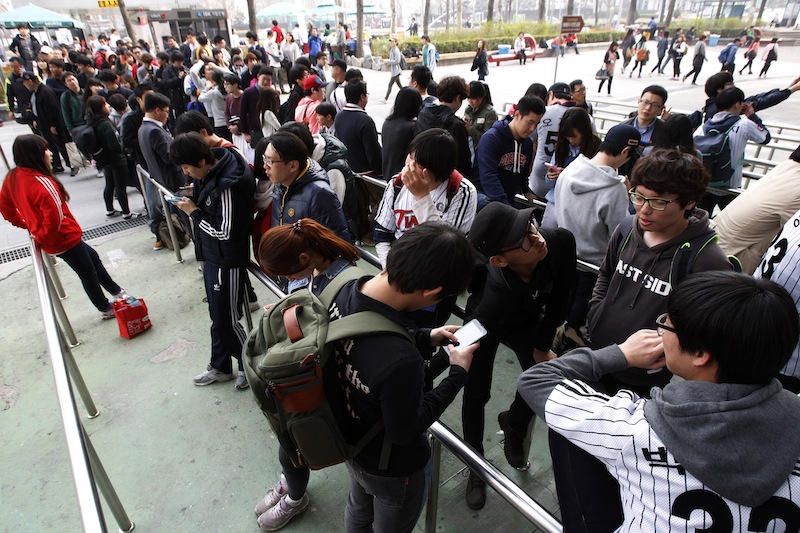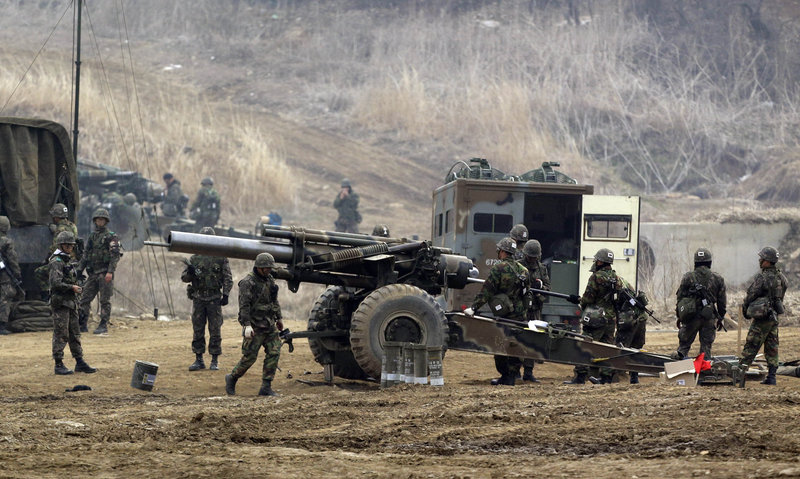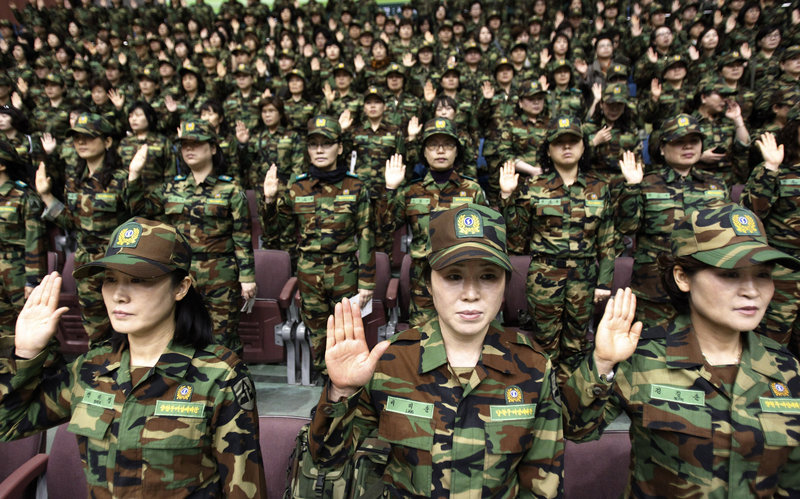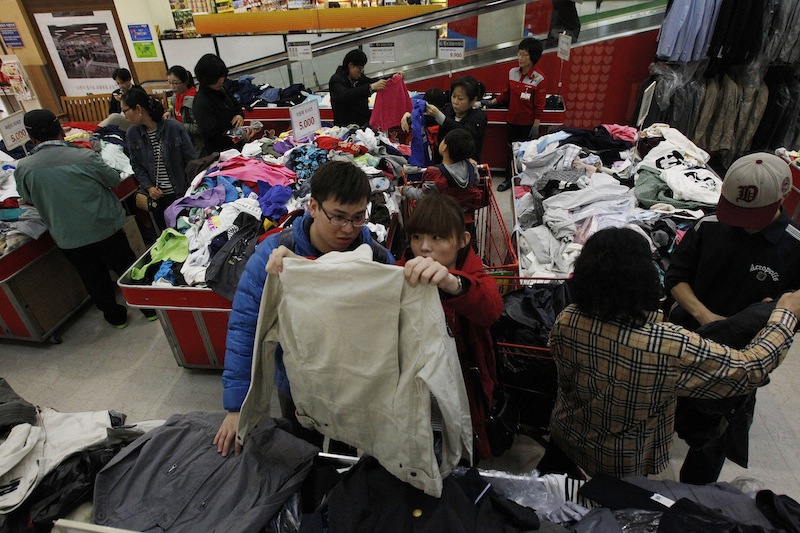SEOUL, South Korea – When North Korea last weekend declared it was in a state of war, threatening to use nuclear weapons against South Korea, reduce its presidential palace to ashes and mercilessly sweep away the warmongers, residents of Seoul reacted much as they always do.
They yawned.
Decades of living in the shadow of an erratic, menacing neighbor have made South Koreans almost deaf to the rhetoric from the North. Many people maintain a blase attitude, shrugging off the bombastic threats as another case of “the boy who cried wolf.”
Although some people expressed fear, the overriding emotions toward the North were irritation and ennui.
“There have been so many threats over a period of time, now I feel indifferent to it all,” said 65-year-old Choi Chang-ho. “I am bored with them.”
Rumblings of war continued Friday. South Korea’s official Yonhap news service reported that North Korea had loaded two intermediate-range missiles onto launchers and moved them to the east coast. The Musudan missiles have a range of 1,800 to 2,400 miles and are capable of reaching U.S. bases in Guam.
North Korea has recommended embassies and consulates evacuate their personnel from the North given the rising tension, Russian Foreign Minister Sergei Lavrov said during a visit to Uzbekistan.
South Korean financial markets have slid — but not plunged — on war jitters. The Kospi stock index ended the week down 3.9 percent.
But a top U.S. military officer said North Korea’s threats, though worrisome, appeared to fit a long pattern of provocation followed by uneasy peace.
“I wouldn’t say I see anything to lead me to believe that this is a different kind of cycle,” Army Gen. Martin Dempsey, chairman of the Joint Chiefs of Staff, was quoted by The Associated Press as saying in Stuttgart, Germany.
Some South Koreans even found humor in the situation. A cable TV entertainment channel offered tips on what to do if a war broke out, with the host enjoying a curry and rice MRE, the ready-to-eat meals used by the military.
“South Koreans feel like, ‘Hey, we’ve seen this show in the past.’ People should be more concerned than they are, but they’ve heard the threats before,” said Lee Chung-min, dean of international studies at Yonsei University in Seoul. “Life goes on.”
The chance of a war with its heavily armed communist neighbor seems too far-fetched for people in Seoul, a modern city of more than 10 million, to affect their busy lives.
“The North Koreans are not living in this world by themselves,” shrugged Kim Soon-ja, 61, at Seoul’s busy main train station this week. “A war won’t erupt that easily.”
Song Nam-sook, 64, said South Korea’s defense capabilities gave her peace of mind.
“I hear that if the South Korean military sees something fired from the North, then they would launch a missile right away to shoot the North Korean ones down,” Song said. “So we don’t have to worry about it.”
Seoul is only 30 miles from the demilitarized zone, well within range of North Korea’s conventional artillery.
Although more than 1 million Koreans were killed in the 1950-53 war that devastated the peninsula, it was the foreigners here who seemed more worried about the threat from the North. Embassies in Seoul were quietly drawing up contingency plans in case their citizens needed to be evacuated.
Tourist agencies that specialize in trips to five islands in the region have reported that many customers canceled or postponed their plans.
However, as of Friday, there were still more than 600 South Koreans working at the Kaesong industrial park, a joint project on the north side of the border. South Korean Unification Minister Ryoo Kihl-jae, the top official for inter-Korean relations, told reporters that his government had plans in case they needed to be evacuated, but that at the moment concern was not “so high.”
Over the years, North Korea’s propagandists have lambasted South Koreans as “puppet warmongers,” and with numbing frequency threatened to turn their country into a “sea of fire.”
The actual attacks in recent years have been limited but nonetheless deadly. In 2010, North Korea shelled a military base on nearby Yeonpyeong island, killing four South Koreans, and are believed to be responsible for the sinking of a South Korean naval corvette that killed 46.
Hee-yun, a 23-year-old history student in Seoul who asked that his family name not be used, said he felt more angry then anxious about the North Korean regime.
“The North (Koreans) know they don’t have a chance at winning, but still they carry on with their provocations to heighten the diplomatic conflict to turn their internal conflicts to the outside,” he said. “Thus they are trying to strengthen the domestic unity, to continue on with their rule.”
Send questions/comments to the editors.






Success. Please wait for the page to reload. If the page does not reload within 5 seconds, please refresh the page.
Enter your email and password to access comments.
Hi, to comment on stories you must . This profile is in addition to your subscription and website login.
Already have a commenting profile? .
Invalid username/password.
Please check your email to confirm and complete your registration.
Only subscribers are eligible to post comments. Please subscribe or login first for digital access. Here’s why.
Use the form below to reset your password. When you've submitted your account email, we will send an email with a reset code.